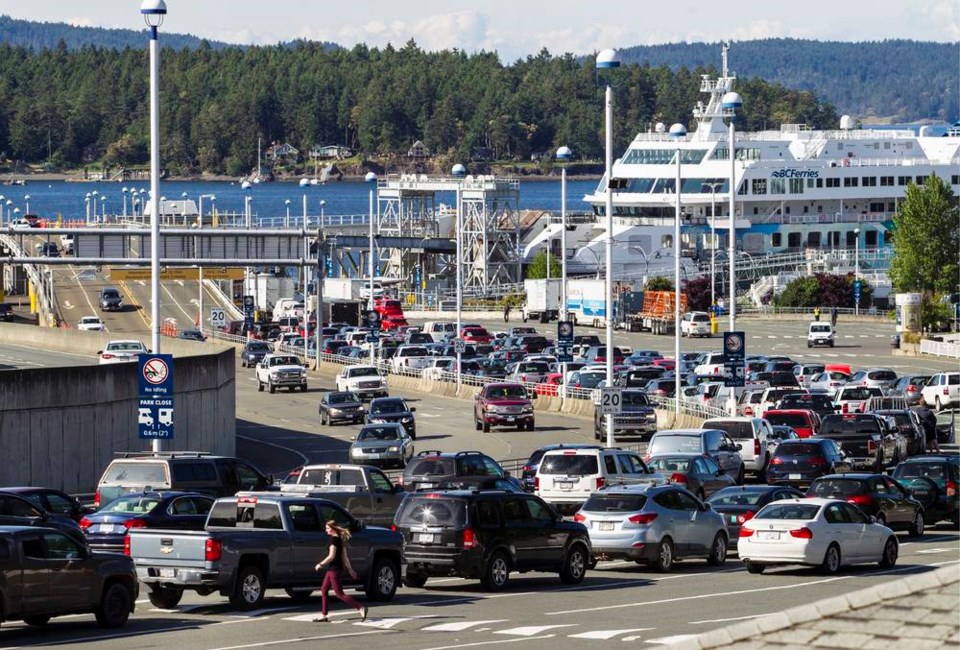Premier John Horgan says he’s disappointed by Transport Canada’s reversal of its decision to allow B.C. Ferries passengers to remain in their vehicles on enclosed decks during sailings.
“This is an unwelcome intrusion by the federal government at this time and we’re going to pursue it,” Horgan said Wednesday, noting he broached the issue with Deputy Prime Minister Chrystia Freeland “as recently as a few hours ago.”
“We believe that our marine highway is an integral part and essential service,” the premier said. “We believe that we can safely transport people, provided that we have support and co-operation from Ottawa.”
As of Sept. 30, passengers will no longer be permitted to stay in vehicles parked on enclosed decks.
The federal decision comes as virus numbers in the province continue to climb, prompting provincial health officials to order nightclubs closed and to restrict operating hours in bars.
Health officials announced on Wednesday that 100 new cases had been reported, bringing the total in B.C. to 6,691 in B.C. to date.
In the spring, Transport Canada — which has jurisdiction over safety matters on B.C. Ferries — decided that passengers could remain in their vehicles during sailings in an effort to stop transmission of COVID-19.
The federal department says the policy has changed because other anti-virus practices have been implemented. New safety protocols on ferries include additional cleaning, sanitizing, physical distancing and mandatory wearing of face coverings while at the terminal and on board vessels.
Areas that had been temporarily closed will also be reopened for seating, including space used by the Pacific Buffet, which is not returning at this time.
Mark Collins, B.C. Ferries’ chief executive, said passengers are legally required to comply with the federal regulation. “We expect our customers to follow the law and we continue to have a zero-tolerance policy for abuse of any kind towards our employees,” Collins said.
Before the pandemic, passengers were not allowed to stay in vehicles in enclosed vehicle decks because of safety concerns.
B.C. Ferries said in a statement that enclosed car decks represent inherent risk to the travelling public.
“During the pandemic, these risks were mitigated with additional safety procedures and patrols.
“However, Transport Canada has now advised B.C. Ferries that measures have been developed and implemented to prevent the spread of the disease in all transportation modes and businesses across Canada.”
The federal department told B.C. Ferries “the marine safety case for ending the practice of permitting people to remain in their vehicles on enclosed car deck is clear.”
Routes affected by the closed-car-deck regulation include Swartz Bay-Tsawwassen, Duke Point-Tsawwassen, Departure Bay-Horseshoe Bay, Comox-Powell River, and Southern Gulf Islands-Tsawwassen.
On the Horseshoe Bay-Langdale route, B.C. Ferries has approval from Transport Canada to allow passengers to remain on the main vehicle deck following modifications to the vessels and procedures, but that does not apply to any other routes.
